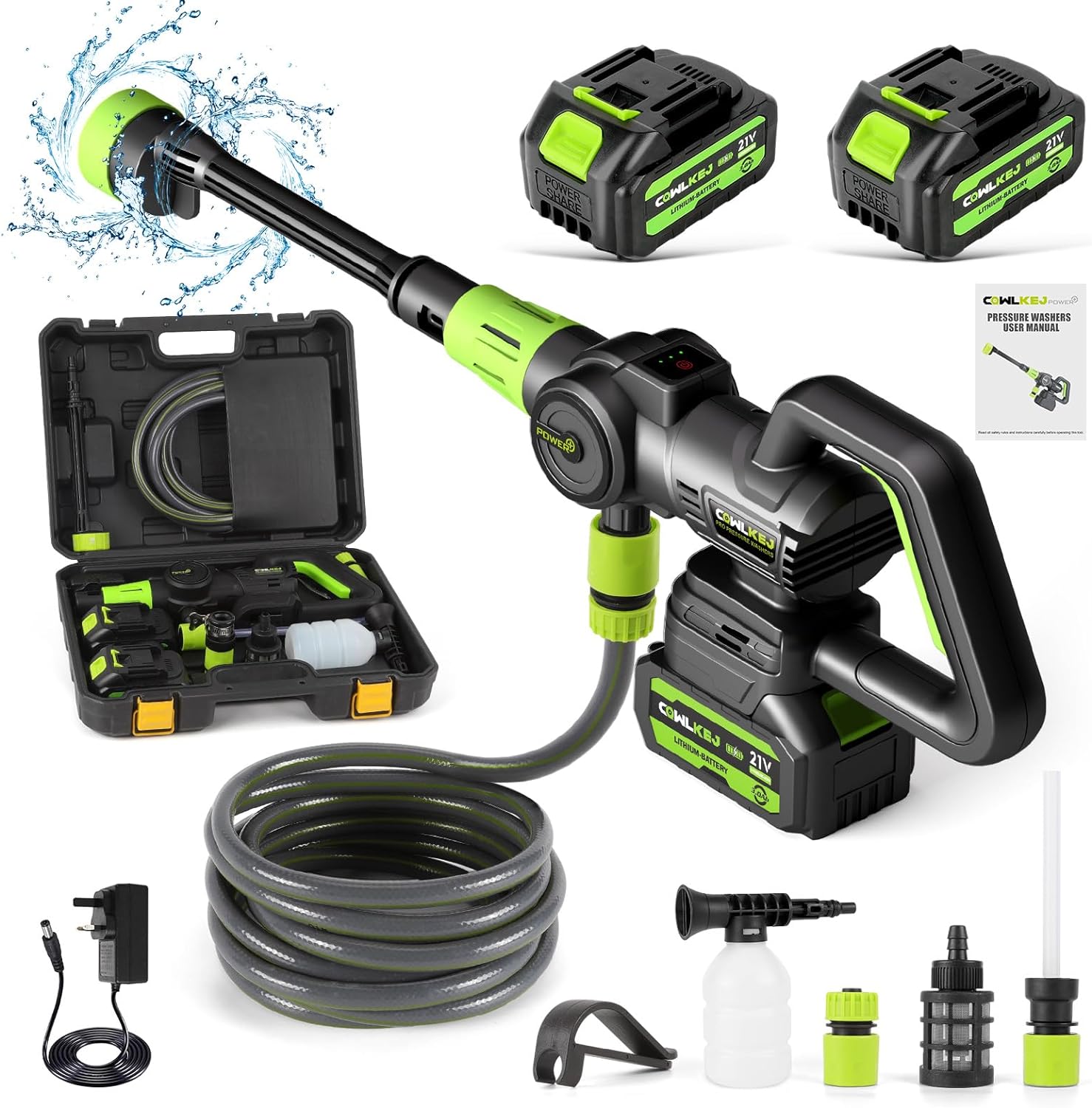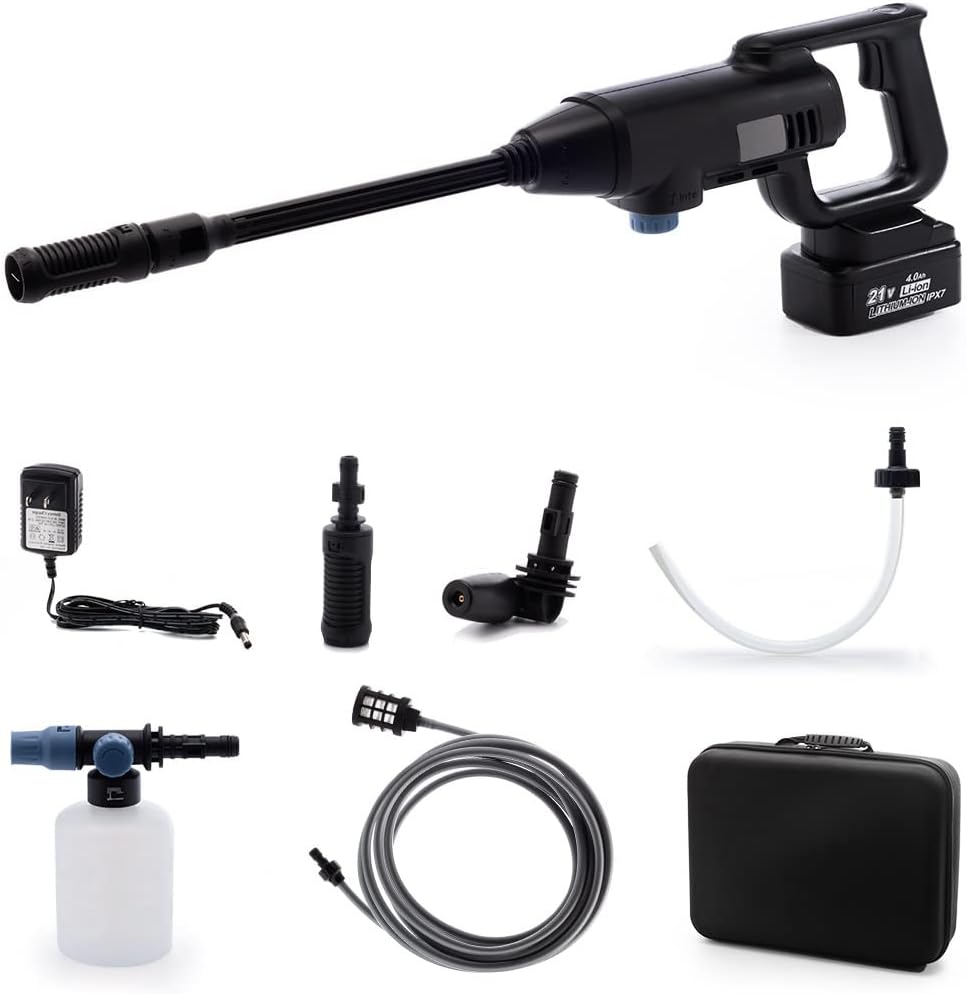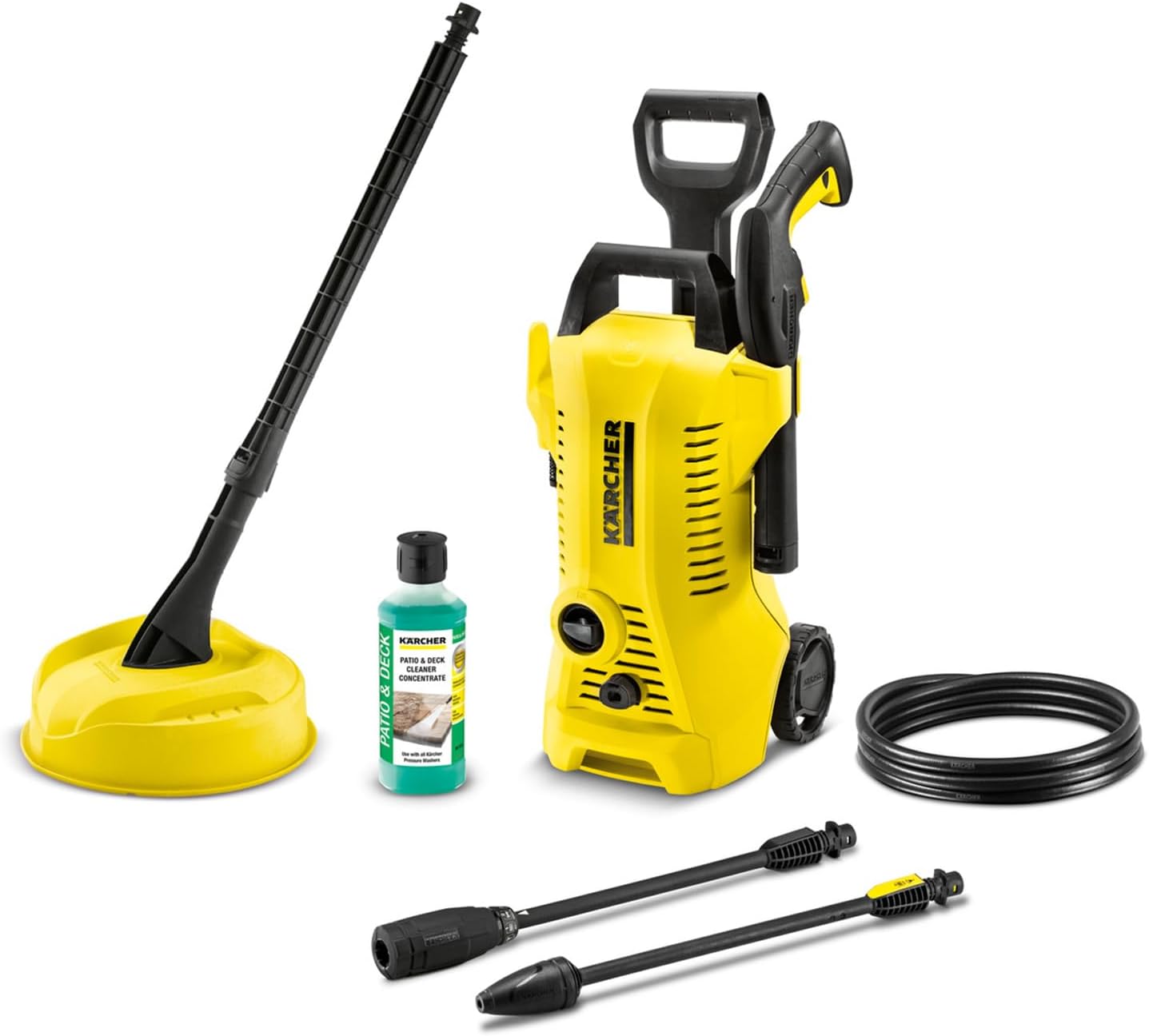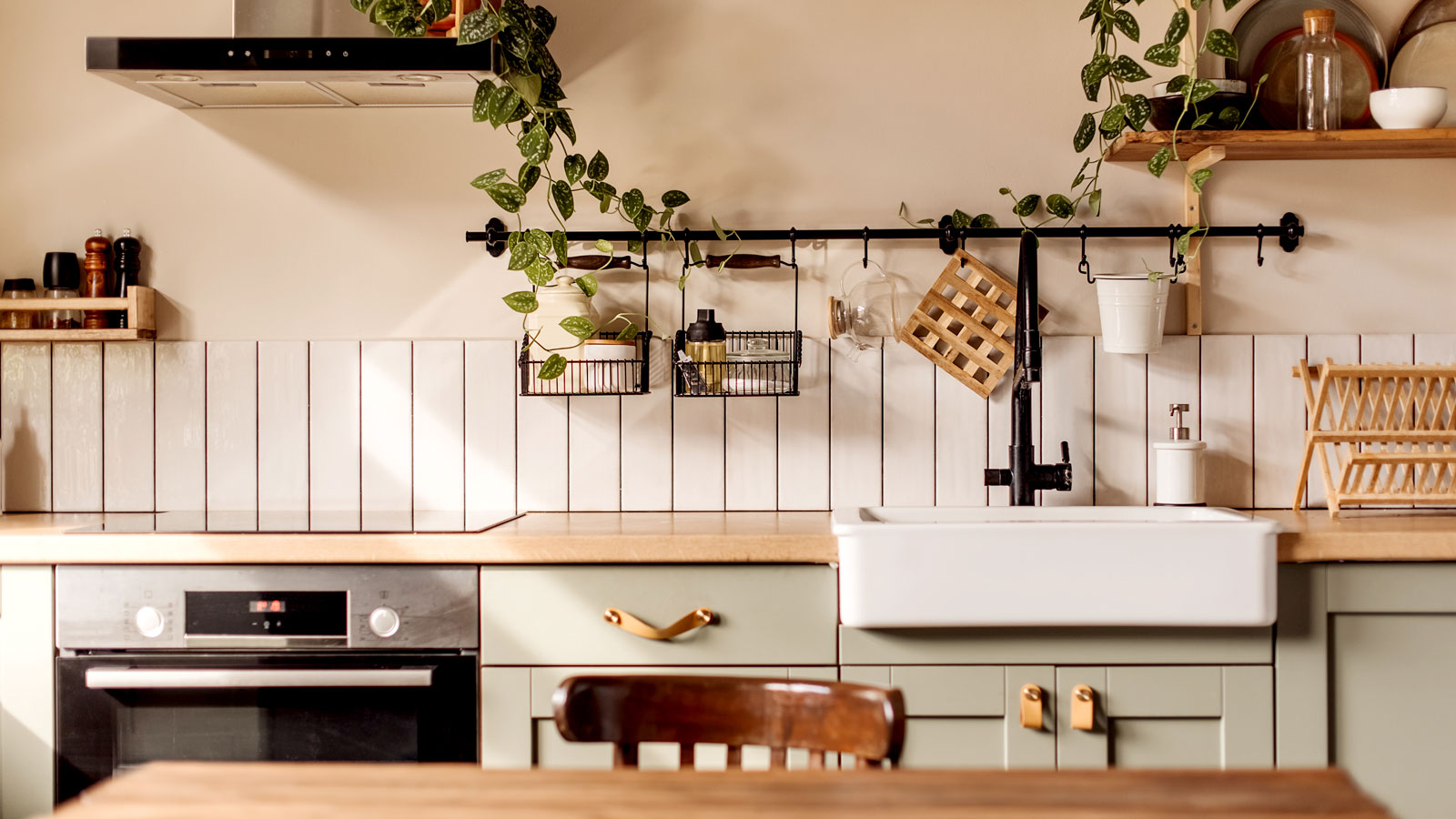DIY expert reveals her golden rules for using a pressure washer
A DIY expert reveals when you should and shouldn't use a pressure washer – to keep surfaces free from damage
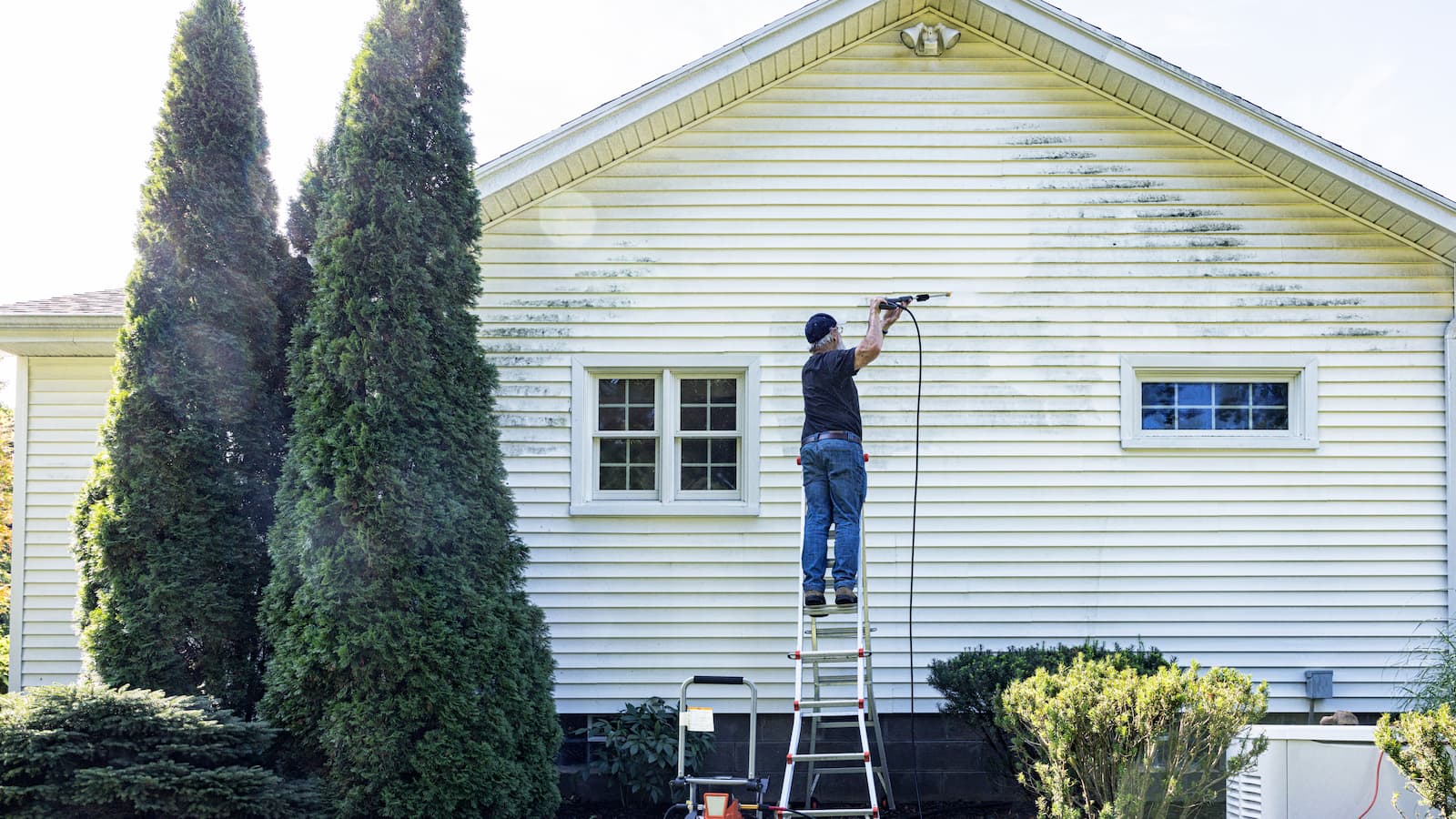
Bring your dream home to life with expert advice, how to guides and design inspiration. Sign up for our newsletter and get two free tickets to a Homebuilding & Renovating Show near you.
You are now subscribed
Your newsletter sign-up was successful
Pressure washers can be a handy tool for faster cleaning but there are some jobs they should never be used for, according to one DIY expert.
Claire Baglin, landscaping category manager for Toolstation, warns: “Incorrect use can lead to damaged surfaces and items that can be very costly to fix or replace. In a worst-case scenario, you could even cause serious injury”.
She has shared her top five tips for when even the best pressure washers should not be used, as well as when they are suitable and how to stay safe when operating one.
When shouldn't you use a pressure washer?
1. Painted surfaces – even if you want paint removed
Painted surfaces might accumulate dirt, moss, or other plant growth but Claire explains that using a pressure washer on painted surfaces can cause the paint to chip or peel, and in some cases, it might strip the paint off completely.
Even if you need to remove paint, it's best to use sanding and scraping methods instead or use soapy water and a soft brush for a gentler cleaning method.
If stains remain and the green persists, Claire recommends applying a fresh coat of paint instead.
2. Brick and mortar
Claire advises that using power washers on brick and mortar can cause permanent damage.
Bring your dream home to life with expert advice, how to guides and design inspiration. Sign up for our newsletter and get two free tickets to a Homebuilding & Renovating Show near you.
As brick is porous and absorbs water it can lead to cracking as the brick dries out. The high pressure can also dislodge the mortar between bricks, weakening the structure as well as removing any paintwork from the bricks.
Using a dry brush should be sufficient to clean the brick but any use of water should be minimised.
3. Windows
Claire says the powerful water jet from a pressure washer can break window seals, leading to issues with dampness and condensation.
There's also a risk of shattering the glass, which could result in an expensive replacement. Stick to gentler cleaning methods for windows.
4. Solar panels and outdoor lighting
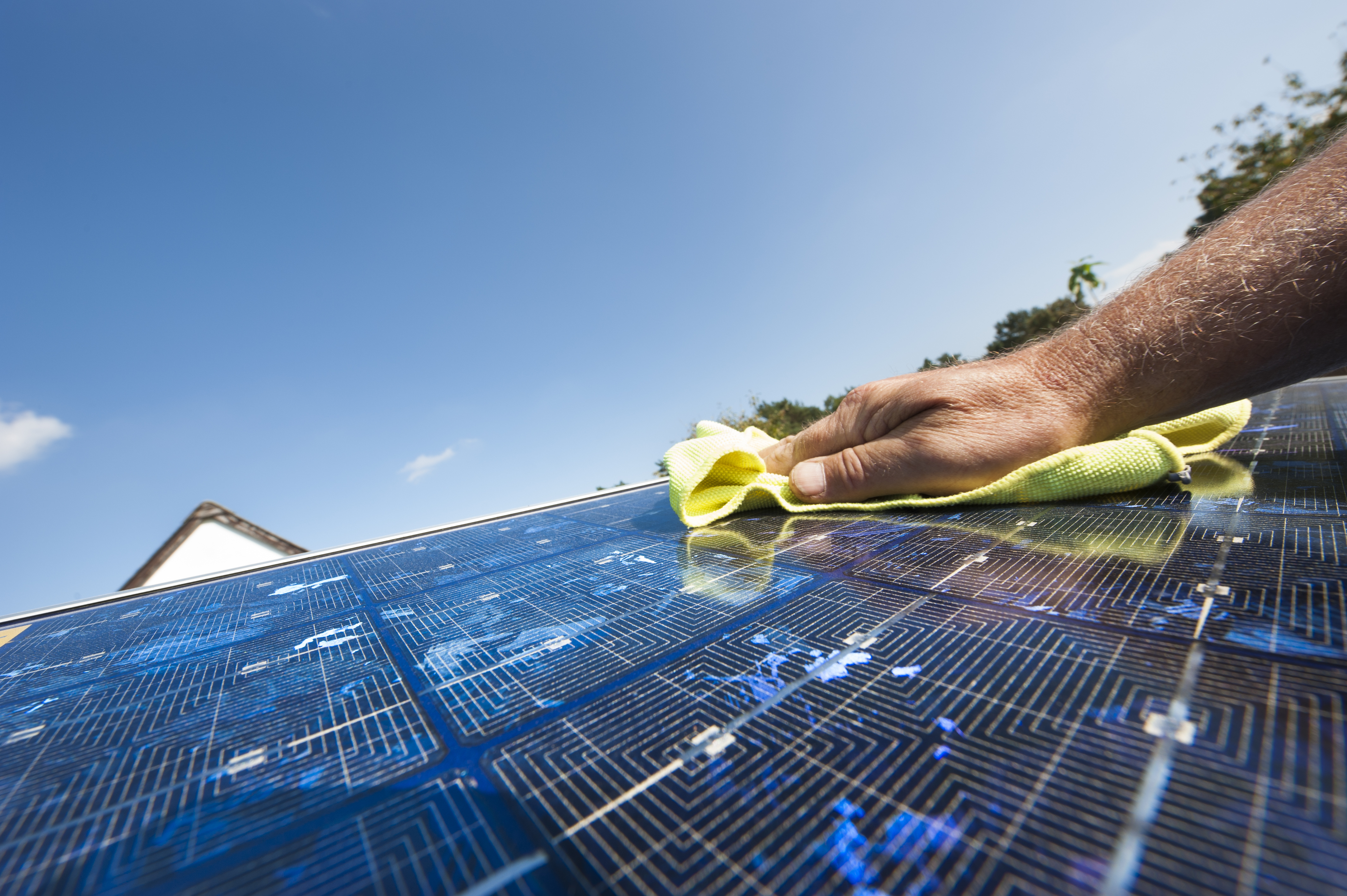
Pressure washing can scratch the surface of solar panels, reducing their efficiency. The high-pressure water can also damage the frames and seals of both solar panels and outdoor lights, causing long-term damage.
Claire recommends using a soft cloth and mild detergent for cleaning solar panels and other delicate surfaces.
It is also crucial you do not use a power washer near any outdoor electric sockets or electric equipment in your garden as this can be incredibly hazardous.
5. Roof tiles
Regular roof cleaning is essential to prevent moss and dirt build-up, which can damage tiled roofs and clog gutters, but you should avoid the temptation of using pressure washers on them.
Cleaning roof tiles with a pressure washer is risky not only because of the height but also due to the potential damage to the tiles, explains Claire.
The intense water pressure can loosen and break tiles, making your roof vulnerable to leaks and other damage. If cleaning by hand is too difficult it is advisable to hire professionals for the job.
Shop pressure washers
When should I use a pressure washer?
1. Vehicles
Claire explains when cleaning cars and other vehicles using a pressure washer set to no more than 1,500 PSI with a 40-degree nozzle. The wider spray pattern is gentle enough to avoid damaging the paintwork or windows while effectively cleaning the surface.
2. Patios and paving
For cleaning patio slabs and paving slabs, a high-pressure setting of around 3,000 PSI is ideal, Claire says. Use a 10-15 degree nozzle to blast away built-up dirt and grime. Be cautious with the grout between the slabs, as high pressure can cause it to break away
3. Decking
It is recommended cleaning wooden decking with a low pressure of no more than 1,200 PSI and a 60-degree nozzle. This setting is strong enough to remove stubborn dirt and algae without damaging the wood. Avoid areas with chips or cracks to prevent further damage.
4. Outdoor furniture
For wooden outdoor furniture, she says set the pressure washer to 1,200 PSI with a 25-degree nozzle. For metal and plastic furniture, you can increase the pressure to 1,700 PSI. These settings will remove dirt and grime while preserving the integrity of the materials, according to Claire.
5. Driveways
Similar to paving slabs, use a high pressure of 3,000 PSI with a 10-15 degree spray nozzle for driveways. This will effectively remove dirt buildup and brighten the surface. Consider using a specialised cleaning hood to contain dirty water and debris, preventing a mess.
Safety tips
Knowing what not to use a pressure washer on is one thing but its also worth knowing how to stay safe when using one.
A pressure washer is a powerful tool that can cause property damage and physical harm if not used correctly.
The high water force can deteriorate surfaces and fling small objects like stones and debris, leading to further damage. To ensure safe and effective use, Claire recommends the following precautions:
- Wear suitable clothing: You’re likely to get wet and dirty while using a pressure washer. Avoid open-toed shoes and shorts, as the water pressure can propel small items at high speeds. Safety goggles are essential to protect your eyes, and wearing waterproof trousers and jackets is highly recommended.
- Check the pressure beforehand: Always perform a test spray 2-3 feet away from your intended object before starting your task. This helps ensure that the pressure is appropriate and won’t damage the surface you’re cleaning.
- Read the instructions: Although it may seem obvious, it’s crucial to read the instructions for your specific pressure washer. No two models are the same, and while nozzle colours are typically coded by degree level, there is no universal standard. Familiarise yourself with your machine to use it safely and effectively.

Senior Landscaping Category Manager at Toolstation with over 15 years experience, Claire is an expert in DIY products from building materials to cleaning and maintenance products.

News Editor Joseph has previously written for Today’s Media and Chambers & Partners, focusing on news for conveyancers and industry professionals. Joseph has just started his own self build project, building his own home on his family’s farm with planning permission for a timber frame, three-bedroom house in a one-acre field. The foundation work has already begun and he hopes to have the home built in the next year. Prior to this he renovated his family's home as well as doing several DIY projects, including installing a shower, building sheds, and livestock fences and shelters for the farm’s animals. Outside of homebuilding, Joseph loves rugby and has written for Rugby World, the world’s largest rugby magazine.
